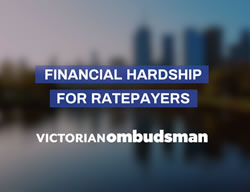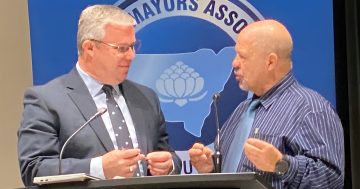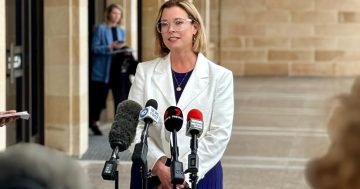 Stronger laws, capped interest rates and improved oversight of debt collectors have been recommended to protect ratepayers in financial hardship from local councils.
Stronger laws, capped interest rates and improved oversight of debt collectors have been recommended to protect ratepayers in financial hardship from local councils.
The proposals follow an investigation by Victorian Ombudsman, Deborah Glass, whose report, Investigation into how local councils respond to ratepayers in financial hardship, examined how struggling homeowners are treated if they fall into debt and whether the practices of Victoria’s 79 councils were fair and reasonable.
“Some offered easier ways to pay rates and demonstrated other good practices such as engaging with local financial counsellors, recognising family violence as a sign of hardship, and providing information in community languages,” Ms Glass said.
“But other councils had policies that were inaccessible, and in some cases, unfair and wrong,” she said.
“The investigation found in some council areas victims of family violence and those with mental health were taken to court over unpaid rates, payment plans were presented as the only option, and people in hardship were charged high penalty interest they could not pay back.”
Ms Glass said councils had obligations to their whole community, not just those who could afford to pay.
She said too many people were told their only option was a payment plan when councils had a blanket policy of refusing waivers and deferrals which were included in the legal framework.
“While councils should only be expected to waive rates rarely, discretion, not sledgehammer refusals, should be the order of the day,” she said.
“The public sector is expected to act in the public interest more than the private sector – but in dealing with hardship, local councils lag behind utility and other companies, including banks.”
Ms Glass said many of the policies were inconsistent with good administrative practice, including litigation against people in crisis and the over reliance on debt collectors.
“When it comes to hardship, too often we’re on our own,” she said.
“Charging penalty interest to people in hardship is also wrong – as well as punitive and counterproductive.
“Nobody wins from heavy-handed approaches, least of all the public interest.”
Ms Glass made three recommendations, including stronger laws and standards with a clear definition of ‘financial hardship’ and capping councils’ ability to charge high penalty interest; developing training and guidance material on dealing with hardship applications and debt recovery; and stronger oversight of debt collectors.
The Ombudsman’s 179-page Report can be accessed at this PS News link.











